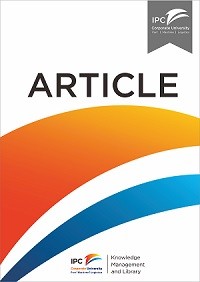Article
Efficiency measurement of selected Australian and other international ports using data envelopment analysis
Available studies have not provided a satisfactory answer to the problem of making international comparisons of port efficiency. This study applies data envelopment analysis (DEA) to provide an efficiency measurement for four Australian and twelve other international container ports. While DEA has been applied to a wide number of different situations where efficiency comparisons are required, this technique has not previously been applied to ports. The DEA technique is useful in resolving the measurement of port efficiency because the calculations are non-parametric, can handle more than one output and do not require an explicit a priori determination of relationships between output and inputs, as is required for conventional estimation of efficiency using production functions. The ports of Melbourne, Rotterdam, Yokohama and Osaka are found to be the most in efficient ports in the sample, based on constant and variable returns to scale assumptions, mainly due to the enormous slack in their container berths, terminal area and labor inputs. The study also draws some policy implications for ports and recommends certain areas for future research.
Ketersediaan
Informasi Detail
- Judul Seri
-
-
- No. Panggil
-
ATC PO TON e
- Penerbit
- Singapore : Pergamon., 1999
- Deskripsi Fisik
-
17 p.
- Bahasa
-
English
- ISBN/ISSN
-
-
- Klasifikasi
-
PO
- Tipe Isi
-
-
- Tipe Media
-
-
- Tipe Pembawa
-
online resource
- Edisi
-
-
- Subjek
- Info Detail Spesifik
-
-
- Pernyataan Tanggungjawab
-
Jose Tongzon
Versi lain/terkait
Lampiran Berkas
Komentar
Anda harus masuk sebelum memberikan komentar

 Karya Umum
Karya Umum  Filsafat
Filsafat  Agama
Agama  Ilmu-ilmu Sosial
Ilmu-ilmu Sosial  Bahasa
Bahasa  Ilmu-ilmu Murni
Ilmu-ilmu Murni  Ilmu-ilmu Terapan
Ilmu-ilmu Terapan  Kesenian, Hiburan, dan Olahraga
Kesenian, Hiburan, dan Olahraga  Kesusastraan
Kesusastraan  Geografi dan Sejarah
Geografi dan Sejarah